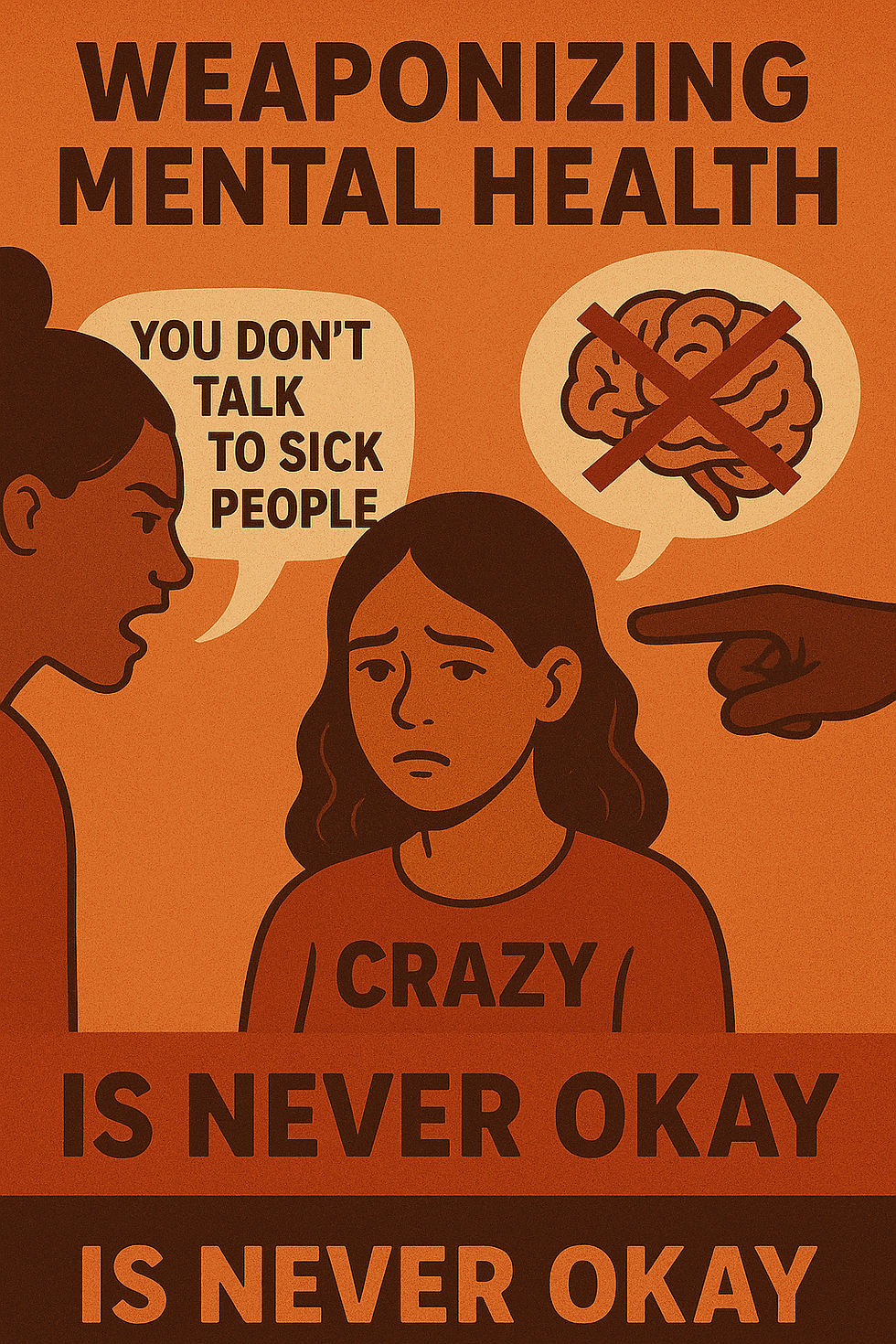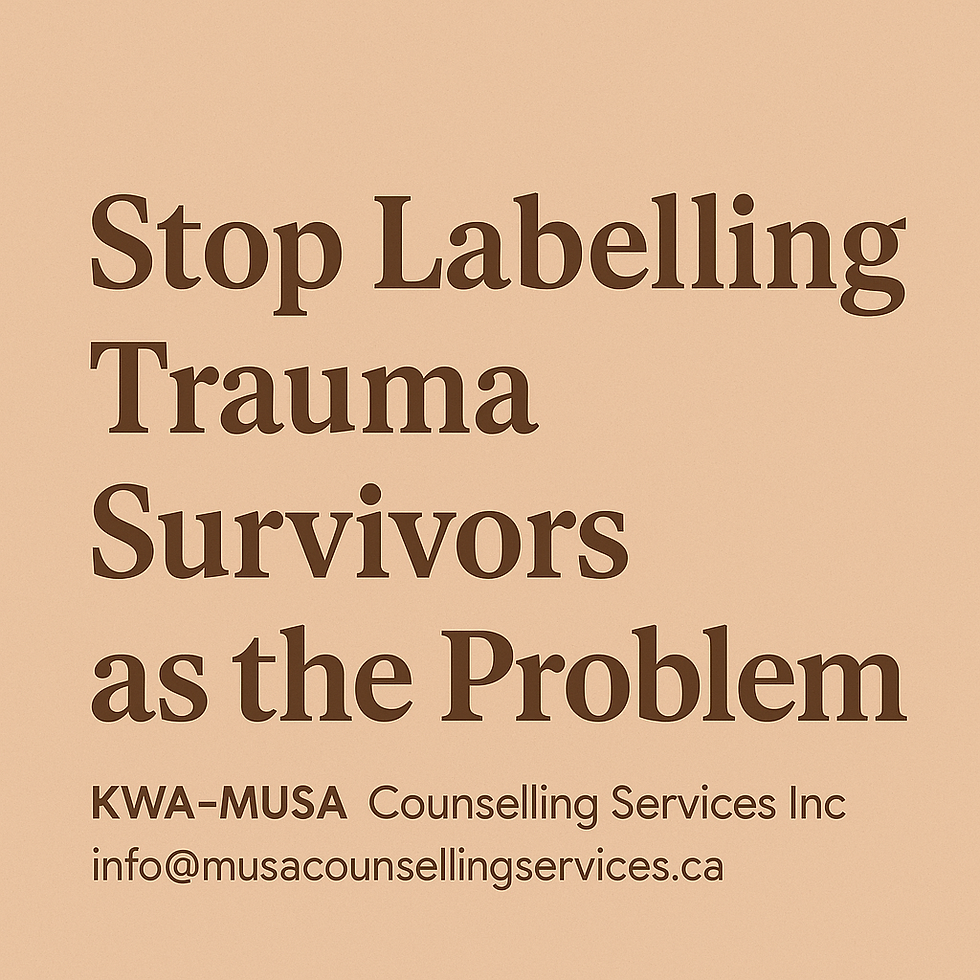Part 2: The Silent Violence of Stigma — When Mental Health Becomes a Weapon
- GLORIA MHLANGA
- 5 days ago
- 2 min read

I just watched a scene on The Braxtons where Tamar Braxton’s mental health was weaponized by her own sisters. Watching that moment hit me hard — because I’ve lived it. I know what it feels like to have your openness about mental health turned against you. Like Tamar, I’ve had family members call me “crazy” and work colleagues — even people in leadership — label me as “unwell.”
All because I dared to be honest or share the secrets of family trauma. Because I refused to hide my struggles or pretend that mental health only happens to “other
people.”
That’s why this issue runs deep for me. It’s not just something I speak about — it’s something I’ve survived. And it’s also why I’m passionate about the work I do as a mental health counsellor. I’ve seen firsthand how stigma isolates, silences, and breaks people down. But I’ve also seen how compassion, empathy, and honest dialogue can rebuild what stigma destroys.
In our communities, families, and even friendships, we often say we “support mental health,” yet too many still weaponize it. Phrases like “you don’t talk to sick people” are not empathy — they’re exclusion wrapped in judgment. They suggest that people who are struggling have no right to express themselves, hold others accountable, or be part of meaningful conversations.
But mental health challenges do not make a person less human, less capable, or less deserving of respect. When we use someone’s mental state to discredit or shame them, we commit a quiet kind of violence — one that leaves invisible scars.
It’s time to shift the narrative:
• From judgment to understanding — asking “What happened to you?” instead of “What’s wrong with you?”
• From shame to support — recognizing that healing is a shared journey, not a private flaw.
• From control to compassion — remembering that love, respect, and belonging are not conditional on someone appearing “well.”
We can’t just wear “mental health awareness” as a badge — it must show in how we treat people every day. Awareness without empathy is performance. Real awareness means choosing kindness, especially when it’s uncomfortable.
Healing begins when we create spaces where people can speak without fear of being labeled. Where honesty isn’t punished, and where being “open” is not seen as being “unwell.”
Because the real strength lies not in silencing pain — but in standing in truth and choosing compassion anyway.


Comments